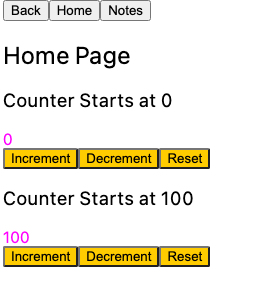Sutil is a web application framework for F#.
Its features are:
- Simple DOM builder, courtesy of Feliz.Engine
- No dependencies. Sutil is written entirely in F#, and so does not layer on top of another JS framework, such as React.
- Reactivity using IObservable and stores. Sutil does not use a virtual DOM.
- Support for Elmish (Model-View-Update) architecture.
In addition, Sutil inherits all the benefits of both Fable (F# with excellent JS interop) and F# itself.
Sutil was heavily inspired by Svelte, and imports several of its design features, such as stores and component styling. Some parts of Sutil are direct ports from Svelte.
To compile Sutil and build the main Sutil app in watch mode:
npm run startTo run tests:
npm run testTo deploy to https://sutil.dev (you will need to be Dave Dawkins for this to work). This will:
- build Sutil
- build documentation
- install to sutil.dev
npm run deploy:linodeManually:
- ensure that repl/src/Fable.Repl.Lib/Fable.Repl.Lib.fsproj is up-to-date with the list of Sutil file names.
- review
repl/public/samples/samples.jsonfor examples that should be included or removed
Build the REPL and deploy (to sutil.dev if you're Dave Dawkins):
cd ../davedawkins/repl
./sutilbuild.sh
npm run deploy:linode








